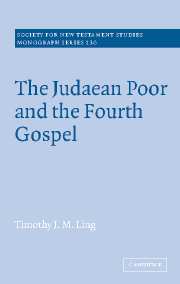2 - The New Testament world
Published online by Cambridge University Press: 22 September 2009
Summary
Introduction
This chapter is entitled ‘The New Testament World’ as an appropriate testimony to the classic status in the field of social-scientific interpretation which Bruce Malina's book of the same title has gained. Malina's book, and the model of a normative Mediterranean honour culture which it and other works by members of the Context Group promote, has been widely adopted. According to members of the Context Group, the most appropriate models for the sort of cross-cultural analysis necessary for New Testament interpretation are those constructed on the basis of research and data pertaining to the geographical, social, and cultural region inhabited by the biblical communities. New Testament texts are therefore to be read as the products of an ‘advanced agrarian circum-Mediterranean region’. In order to facilitate the reading of these texts, social-scientific resources, predominantly from cultural anthropology, have been adopted to help provide a model of this ‘region’. The resulting model of a defining ‘normative Mediterranean honour culture’ has four essential characteristics: it is public in nature, paramount in practice, rooted in gender distinctions, and agonistic in character. The intended purpose of this model is to bring values into the open for critical scrutiny, to sensitise the reader to another culture, to provide a reading scenario, and so to ‘fill in the context’, i.e. to facilitate interpretation. The prominence of this particular model makes it a natural starting point for any discussion of the social world of the New Testament.
- Type
- Chapter
- Information
- The Judaean Poor and the Fourth Gospel , pp. 11 - 61Publisher: Cambridge University PressPrint publication year: 2006



